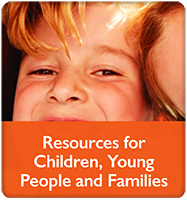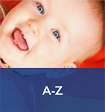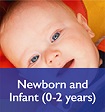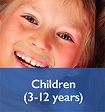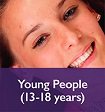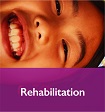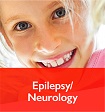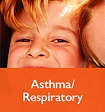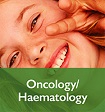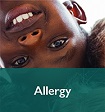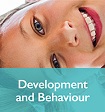Asthma
Asthma is a condition of the airways (the tubes that carry air into and out of the lungs). Children with asthma have sensitive airways. In response to a trigger the airways swell, extra mucous is produced and the muscles around the airways contract. These three changes make it hard to move air into and out of the lungs. This is known as a flare-up of the asthma. The most common triggers in children include viruses, cigarette smoke exposure, pollens, dust mite and animal fur. Symptoms of asthma in children include shortness of breath, wheezing, and coughing (at night-time or after activity). An important part of managing asthma is to recognise flare-ups, these may occur suddenly, but often have a build-up.
Recognition of asthma symptoms develop as children grow. Some children find their asthma improves by the time they reach puberty. For others, the condition remains with them throughout their adult years.
Asthma can be managed using medications, with regular health checks and a healthy lifestyle. With good management children with asthma have regular attendance at school, attend school camps, and play sport without interruption.
All children with asthma should have an Asthma Action Plan which tells you what medication they should take regularly and guides you in decision making regarding medications and seeking medical assistance when your child is not well.
Many children with asthma are managed by their general practitioner. Some children are referred to a paediatrician or specialist respiratory clinic.
Who we care for
There are paediatric asthma services based at the Royal Hobart Hospital, Launceston General Hospital, and the North West Regional Hospital (Burnie).
Children with asthma are referred for specialist paediatric opinion for the following reasons:
- They are having regular flare-ups
- They don’t seem to respond to medications
- The general practitioner is unsure if they have asthma
- They are missing a lot of school or are unable to participate in physical activities due to symptoms
- They have had an admission to hospital or have been unwell enough to come to the emergency department multiple times
What to expect at asthma clinic
At a specialist clinic the paediatric team will take a history of symptoms and medication, examine your child and plan for management of asthma. School-aged children will have their lungs tested (lung function test).
Some children may also be referred for allergy testing (skin prick testing or blood test).
You and your child will receive education about asthma. This may include asthma medications and devices, trigger avoidance, how to recognise symptoms, and when to call for medical advice.
Your asthma team usually begins with
| Child (you) and family or caregiver | You and your parents/caregivers are important members of our health care team, you look after yourself and your condition every day. You can tell us about your health and how your condition affects your everyday life. We will include you in decisions about your health. |
| Paediatrician | Your paediatrician is a key member of your health care team, they provide specialist medical care and look at your health holistically. Your paediatrician often takes the lead in providing a diagnosis or organizes referrals for tests or assessment with other health professionals. |
| Asthma nurse |
At each appointment, they will be available for education. They may assist with tests on your child’s lungs. The asthma nurse also helps co-ordinate appointments and is the primary contact person for questions and concerns.
There is an asthma nurse in Hobart, Launceston and Burnie. Hobart: Launceston: Burnie: |
| Nurse practitioner (NP) | A nurse practitioner is a registered nurse with the experience, expertise and authority to diagnose and treat people of all ages with a variety of acute or chronic health conditions. NPs have completed additional university study at master’s degree level and are the most senior and independent clinical nurses in our health care system. |
Depending on individual needs the following health professionals may also provide care
General practitioner (GP) | Your general practitioner (GP) is another key member of your health care team, they will take care of your child in between specialist clinic appointments. Once your child’s management is under control then they will be the doctor who continues to monitor their asthma. Your GP can provide medication scripts and update Asthma Action Plans for your family or school. At the end of every clinic appointment and hospital admission, your GP will be provided with a letter outlining what was discussed, the medications your child is taking and what the ongoing plan is for their care. Even when your child’s asthma is well controlled, they should see their GP at least twice a year to review their asthma medication and management. |
| Pharmacist | The pharmacist will help you understand your medication and keep your medication plan as simple, safe and helpful as possible. The pharmacist can also give support to doctors as required. |
| Respiratory scientist | Respiratory scientists conduct lung function tests to help assess the health of your lungs, airways and respiratory muscles. If you need a lung function test your paediatrician or specialist doctor will discuss this with you. |
How to access the asthma clinic
A general practitioner referral is required. Your GP can submit the referral by following the directions on the Department of Health, Tasmania's outpatient clinics website.
Other supports >>
| Child Health and Parenting Service (CHaPS) | CHaPS work in partnership with families of children 0-5 years of age and aim to enhance the health and wellbeing of all young children in Tasmania. They provide child health and parenting information, support, assessment and advice. Services provided include completion of age-related growth and developmental assessments from 2 weeks to 4 years of age and assistance with breastfeeding/feeding issues, nutrition, sleep and settling, post-natal depression and wellbeing, child-parent communication and behaviour management. Services are provided from many community locations. You can contact CHaPS directly on 1300 064 544 24/7 parenting information and support is available through an associated service, The Parent Line on 1300 808 178 |
| School | Through the Education Department, schools can access extra support or services to meet health and disability needs. It is important to discuss any individual requirements with school staff. |
(Strong Families Safe Kids) | Some families may require increased support through a community organisation due to the complexity of their situation or other vulnerabilities. |
Contact us >>
| South | North | North West |
|---|---|---|
Royal Hobart Hospital Phone: (03) 6166 0000 | Launceston General Hospital Phone: (03) 6777 5247 | North West Regional Hospital Phone: (03) 6493 6300 Mersey Community Hospital Phone: (03) 6478 5219 |
Disclaimer: this website contains general health information and does not replace the advice of a health professional.


